Smith College's Moodle
Search results: 853
- Instructor: Gary Lehring
The political thought of the 19th century was directed towards understanding and shaping the clashing waves of human emancipation and reaction that defined the era. From the republican revolutions at the end of the 18th century to the struggles over labor at the end of the 19th, powerful forces both receded in the face of struggles for freedom and subsequently overwhelmingly flowed against them. All the while, political thinkers – themselves often engaged in these struggles – attempted to describe and shape these clashes to their own ends. For them, this era brought forth a “world that is totally new” (Tocqueville) and a condition in which the human “spirit has broken with the world it has hitherto inhabited and imagined” (Hegel). Accordingly, 19th century political theorists took it as their task to develop a new, modern understanding of political life, which would not “draw its poetry from the past, but only from the future” (Marx). Struggles for freedom opened the 19th century, but what would be the meaning and extent of that freedom?
In this course, we will read classic texts by some of these thinkers from the European and American contexts by focusing on four major themes which define the four parts of the course. The first part of the course will read three theorists who respectively celebrated, rejected, or reconciled themselves to the new political world which followed the French Revolution. The next part will turn our attention to the American context. After two short pieces by European theorists that attempt to define the spirit of modernity, we will read political texts from three figures of the Transcendentalist movement who each attempted to understand the spiritual life of the individual in modern politics. The third part of the course will analyze the tensions of freedom and slavery in 19th century America, one of the most important settings for the struggle over the meaning of modern freedom. Finally, the last part will take up texts that consider the meaning and possible extent of emancipation, particularly with respect to labor and gender. During each of these parts we will be concerned with the same set of questions that beguiled the 19th century, but with different priority given in each module. What is the spirit of revolution? What is the meaning of modernity? What is the full experience of freedom and why do some claim that it requires the unfreedom of others? And how would it be possible to bring about a full, complete form of human emancipation? These questions are not be merely antiquarian but are also aimed towards gaining a better understanding of the tensions of freedom and unfreedom which still persist in our own world today.
Finally, the assignment structure for this course will include regular participation, four short reflective essays, and a research paper. Please see the tentative syllabus uploaded here for more details.
- Instructor: Kye Barker
- Instructor: Kye Barker
- Instructor: Gary Lehring
- Instructor: Gary Lehring
- Instructor: Nathan DuFord
- Instructor: Joshua Wood
- Instructor: Mlada Bukovansky
- Instructor: Lisa DeCarolis-Osepowicz
- Instructor: Howard Gold
- Instructor: Alice Hearst
- Instructor: Gary Lehring
- Instructor: Marc Lendler
The idea that citizens are obliged to obey the laws under which they live is an old one, but it is not clear on what basis this obligation rests or if it ever obtains in the real world conditions of complex societies, imperfect regimes, and unintended consequences – let alone systemic injustice, social inequality, political domination, and other forms of oppression. Indeed, the practices of dissent, protest, disobedience, and resistance are at least as old – and are arguably no less foundational than obligation to concepts of political authority, legitimacy, and democracy. Moreover, examining the history of democracy seems to reveal that illegal, disruptive, and sometimes violent movements have played a significant role in contesting injustice, confronting inequality, and democratizing institutions. On the other hand, history also reveals to us the way that the upheaval of collective resistance can also give way to brutality, bloodshed, and chaotic destabilization.
How do we make sense of the idea of political obligation in the face of injustice? What role does disobedience play in political society? How do we make room for dissent, disobedience, and resistance while remaining attentive to the political, ethical, and moral risks that such actions carry? What are the political and ethical obligations to which we might be subject as citizens of a polity? What is the depth of obedience and what are the bounds of dissent? What is the nature of injustice, and what kinds of injustices demand dissenting action?
This course will take up these questions through an examination and discussion of core texts in political theory alongside works written by (and about) some of the most influential historical practitioners of civil disobedience: Henry David Thoreau on the subject of conscience in the face of chattel slavery; MK Gandhi on nonviolence in the fight for Indian independence; and Martin Luther King on segregation, law, and racial injustice. Throughout the semester we will consider the ethical and tactical problems posed by disobedience, protest, resistance, and action – and how theorists’ and practitioners’ views of injustice, responsibility, law, action, and ethics relate to their ideas about obligation, injustice, and disobedience. We will end the course by discussing the ethical and political stakes of civility, as well as violence and nonviolence.
- Instructor: Erin Pineda
- Instructor: Jeremy Wolf
- Instructor: Howard Gold
- Instructor: Gary Lehring
- Instructor: Gary Lehring
- Instructor: Gary Lehring
